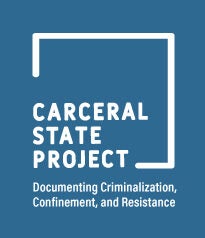The Carceral State Project is working with the Michigan Center for Youth Justice (MCYJ) by providing research support for its legislative advocacy efforts to reform punitive policies toward justice involved youth. In recent years, the MCYJ has played a crucial role in the Raise the Age campaign, which passed in 2019 and raised the age of juvenile court jurisdiction from 17 to 18 (until this revision, Michigan was one of the only states to automatically transfer 17-year-olds into the adult system). Despite these efforts, Michigan’s juvenile policies remain one of the harshest states in the nation, allowing prosecutors to automatically transfer juveniles of any age into adult criminal court, the result of a series of punitive laws passed in the 1980s and 1990s.
In 2020, the Michigan Center for Youth Justice launched a legislative campaign to improve record confidentiality for justice involved youth and to change the state law, enacted in 1988, that makes juvenile records publicly available. By failing to protect the confidentiality of youth, Michigan’s policies create barriers for those with juvenile records in employment, education, housing, and other areas. At MCYJ’s request, DCC’s Policing and Social Justice HistoryLab prepared a research memo on the legislative intent and political context of the 1988 amendments to the Juvenile Diversion Act and Probate Code, which provided for the mandatory transfer to adult court of juveniles charged with “serious” offenses, gave prosecutors automatic authority to transfer juveniles for any reason, and unsealed juvenile records for the general public. Jason Smith, the Youth Justice Policy Director for MCYJ, utilized this memo in his testimony to the Judiciary and Public Safety Committee of the Michigan state senate on June 24, 2020. Read both documents below.



